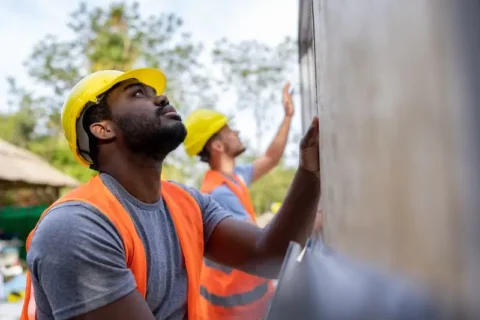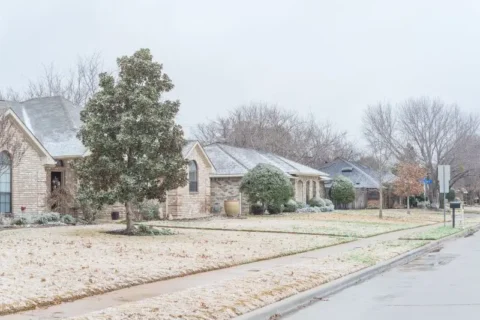Why Your Soil Can Cause Foundation Issues
When you think of foundation problems, the first culprits that might come to mind are things like flooding or poor construction. But did you know the type of soil around your foundation can play a major role in causing damage to your home? In the Dallas, Garland, and Plano areas, the specific properties of the local soil can wreak havoc on your foundation if not properly managed. Here’s what you need to know about how your soil can affect your home’s foundation and what you can do to protect it.
Understanding Texas Soil
One of the key factors in foundation problems across North Texas is the region’s expansive clay soil. Unlike sandy or loamy soils, clay is highly susceptible to changes in moisture content. When it rains, clay soil absorbs water, swells, and expands. During dry spells, the soil shrinks as it loses moisture. This constant cycle of expansion and contraction can put serious stress on your foundation over time, leading to cracks and other structural issues.
In areas like Dallas and Plano, where weather conditions can range from torrential rain to scorching droughts, this can be a year-round issue. Homes built on expansive soil are at a higher risk for foundation damage, especially if preventive measures aren’t taken early on.
Signs Your Soil May Be Causing Problems
If the soil around your foundation is affecting the stability of your home, there are usually some telltale signs:
- Cracks in Your Walls or Floors – When soil shifts beneath your home, it can lead to visible cracks in the walls, ceiling, or flooring.
- Uneven Floors – If the foundation begins to settle unevenly, you may notice that your floors start to slope or feel bouncy in certain areas.
- Doors and Windows That Stick – Shifting soil can cause your house to settle in ways that make it difficult for doors and windows to open and close properly.
How to Protect Your Foundation from Soil Issues
The best way to protect your foundation from soil-related damage is through proactive foundation protection and maintenance. Here are a few steps you can take:
- Proper Drainage: Ensuring that rainwater and runoff are properly directed away from your home’s foundation is crucial. Poor drainage can lead to excess water saturating the soil, which can then expand and push against your foundation.
- Maintain Consistent Moisture Levels: Installing a soaker hose or an irrigation system around your foundation can help maintain consistent moisture levels in the soil, reducing the chances of expansion and contraction during wet and dry weather cycles.
- Consult a Foundation Specialist: For homeowners in Dallas, Garland, and Plano, you need a foundation repair expert who understands the local soil conditions. A foundation specialist can evaluate the condition of your home’s foundation, identify any soil-related issues, and recommend appropriate repairs.
What to Do If You Notice Foundation Damage
If you start to see signs of foundation problems caused by the soil around your home, it’s crucial to address them as soon as possible. The longer foundation damage goes untreated, the more expensive and complicated repairs can become. That’s where James Bond Complete Foundation Repair comes in. Our team of foundation specialists understands the unique challenges posed by the soil in North Texas and can help you protect your home’s foundation from further damage. We offer comprehensive foundation repair services, including foundation inspections, drainage improvements, and more. If you’re concerned about the soil around your foundation, don’t wait until the damage worsens. Contact us today for a free estimate.


